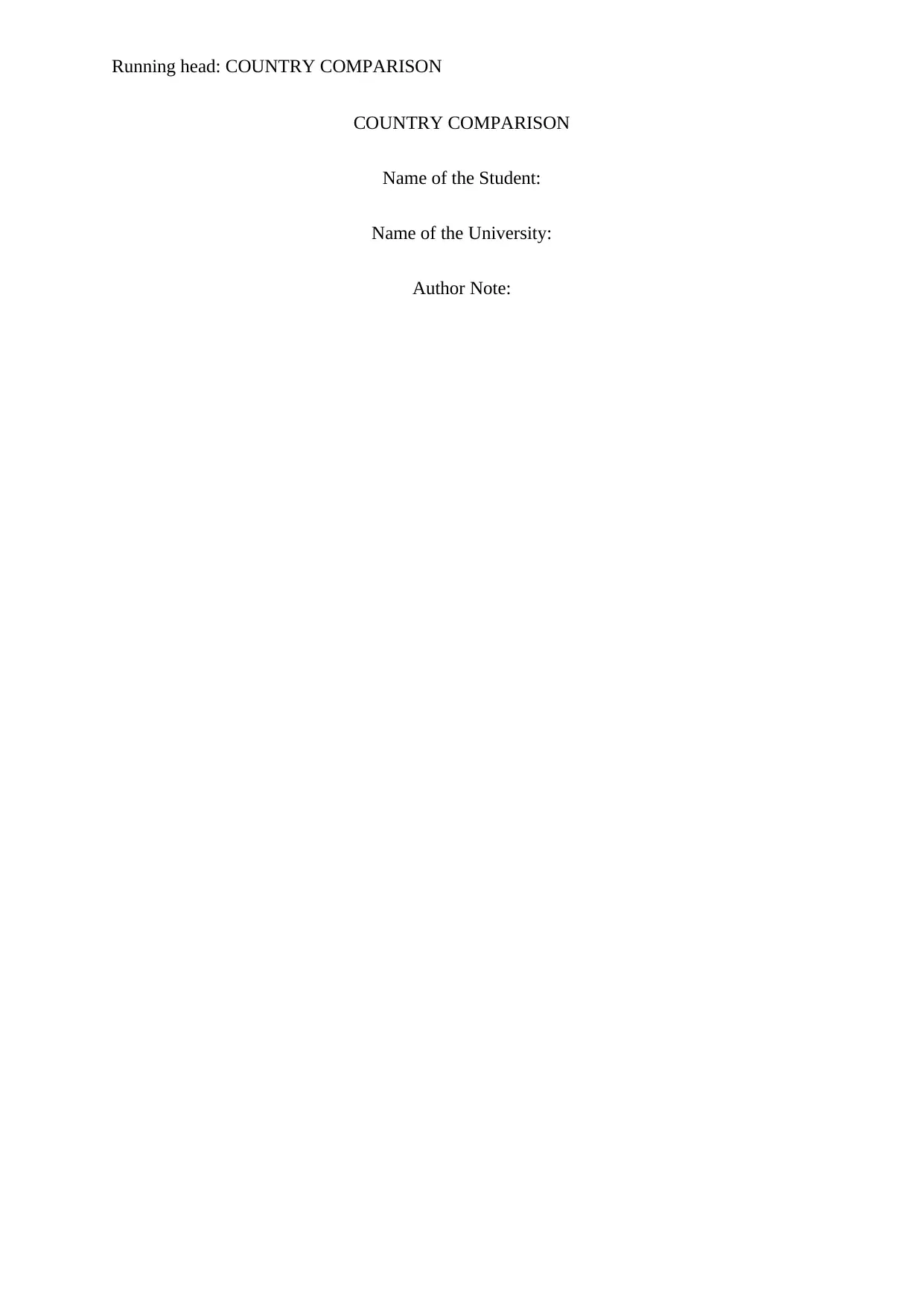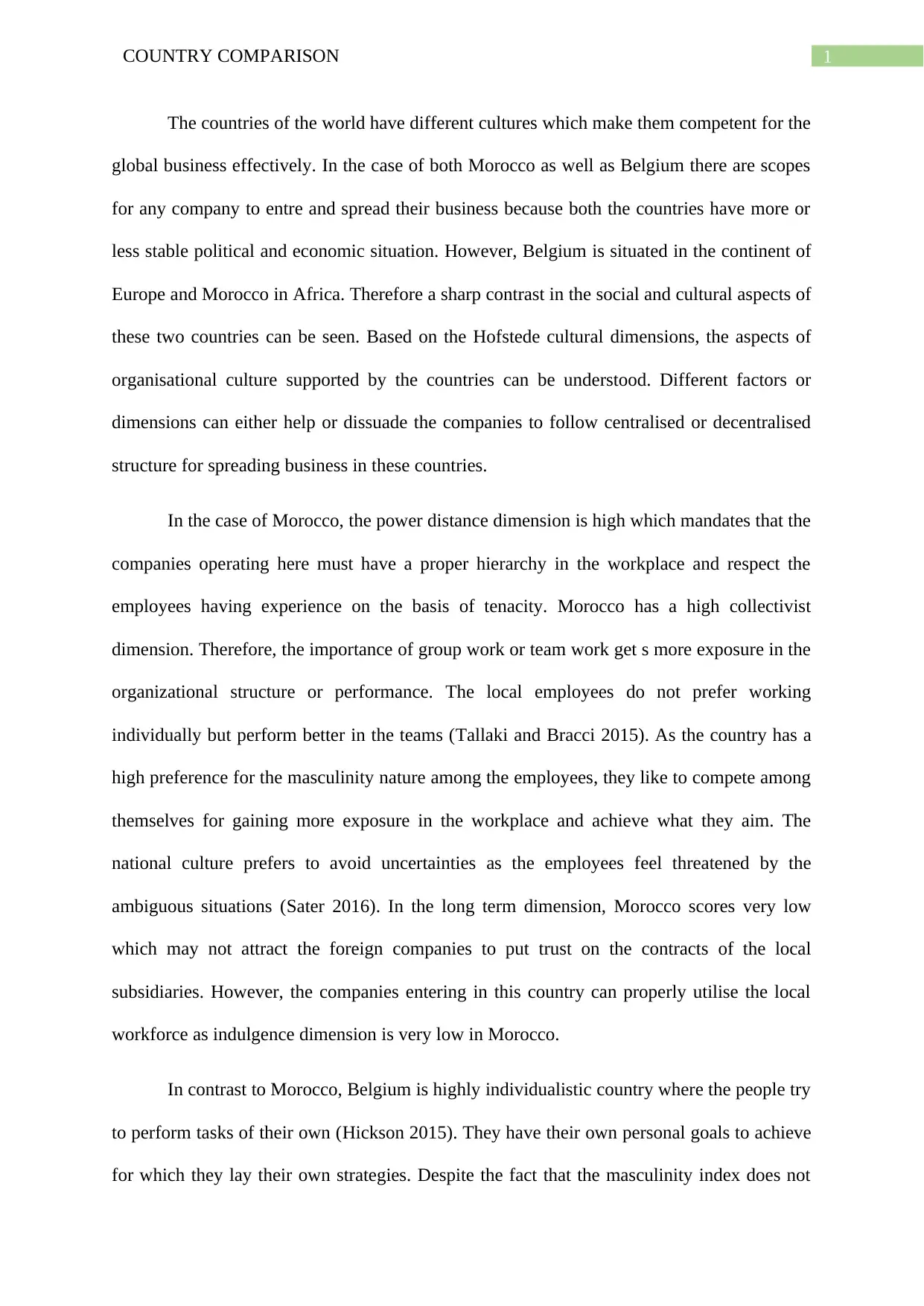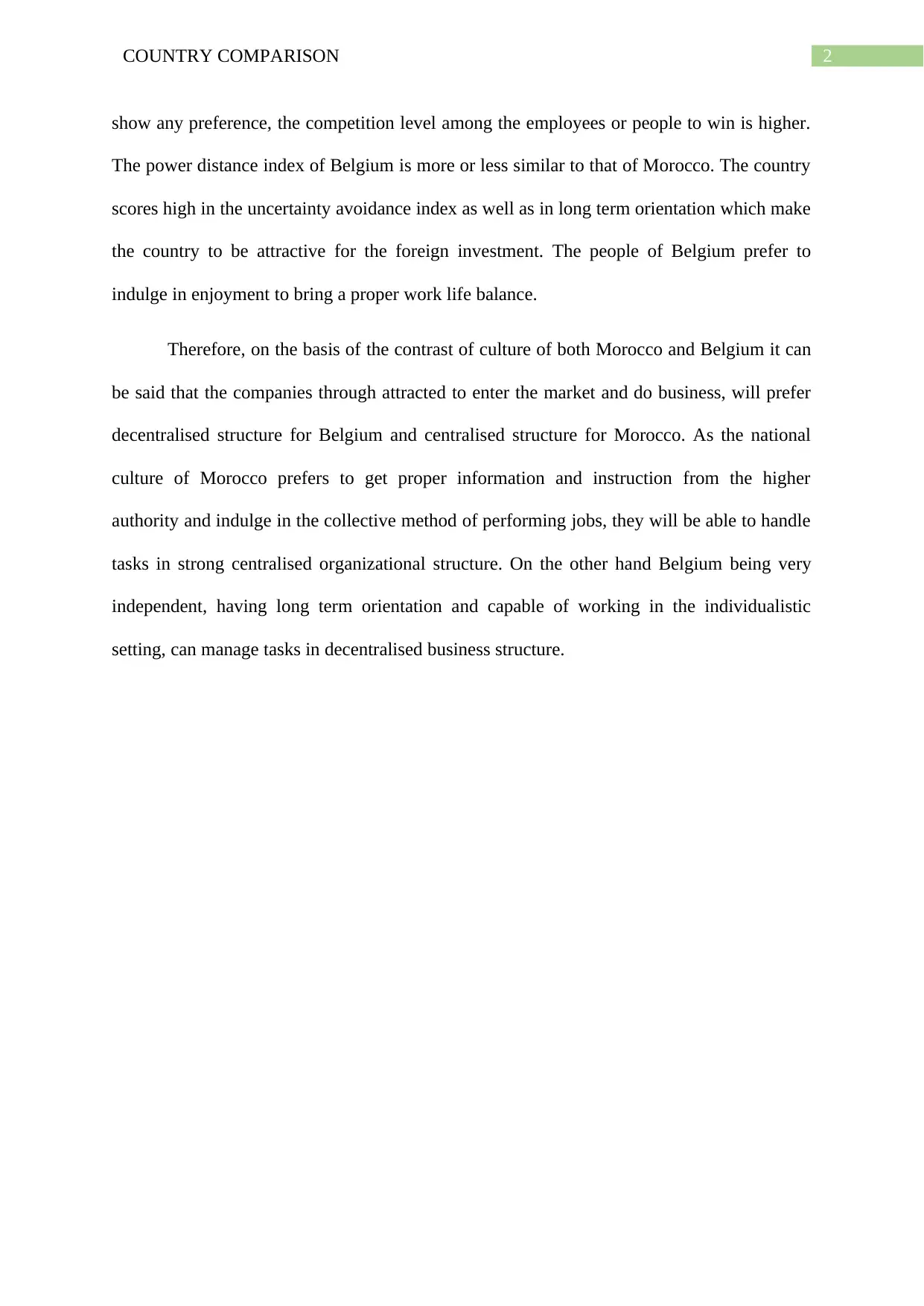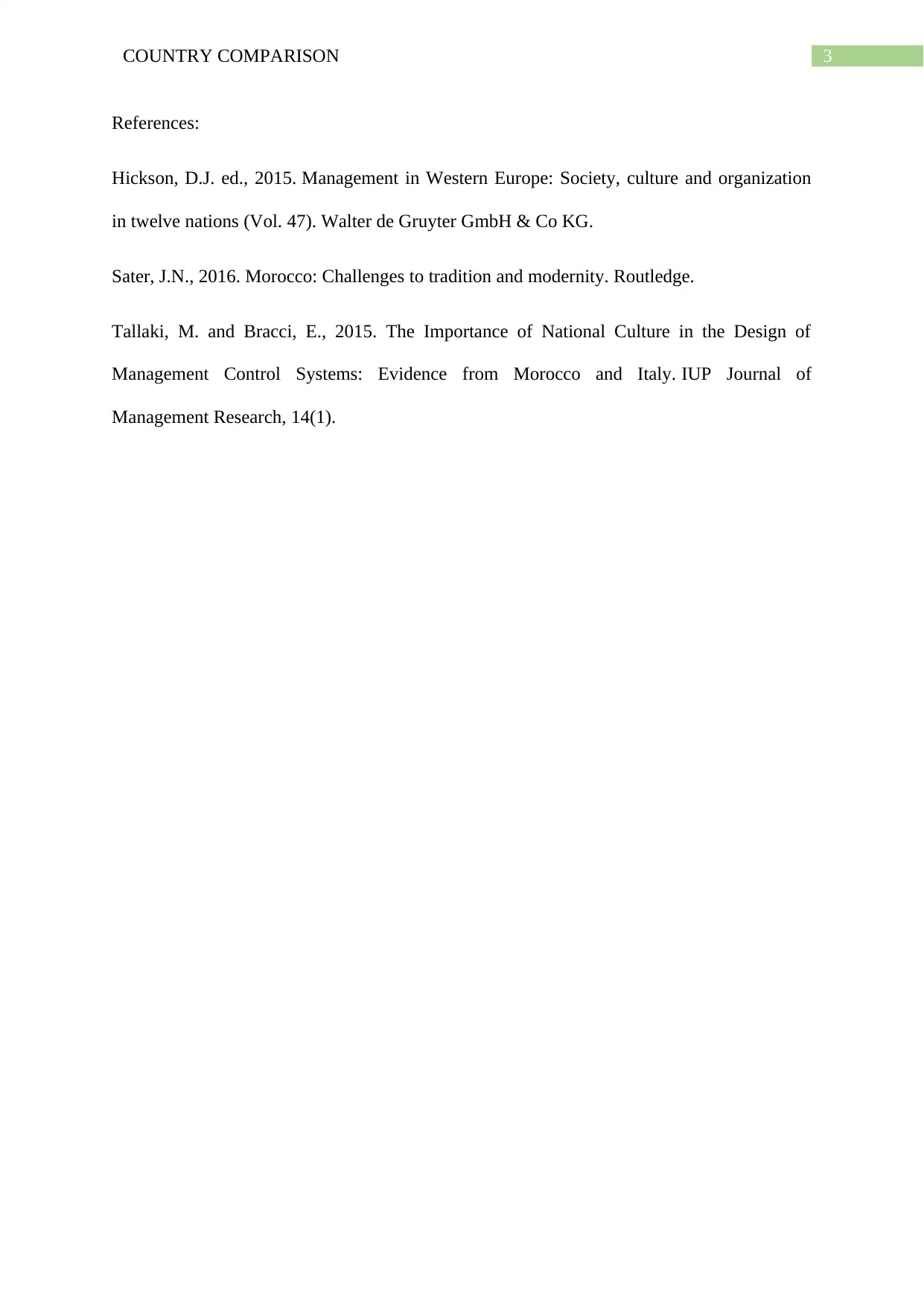Business Strategies: Comparing Morocco and Belgium's Cultural Impact
VerifiedAdded on 2023/04/04
|4
|613
|135
Report
AI Summary
This report provides a comparative analysis of the business environments in Morocco and Belgium, focusing on the impact of cultural differences on organizational structures and business strategies. The analysis is based on Hofstede's cultural dimensions, exploring factors such as power distance, individualism, masculinity, uncertainty avoidance, and long-term orientation. The report highlights how these cultural aspects influence the suitability of centralized versus decentralized organizational structures in each country. For Morocco, the report suggests a centralized structure due to its high power distance and collectivist nature, while for Belgium, a decentralized structure is recommended, given its individualistic tendencies and long-term orientation. The report also references the local workforces, investment and cultural preferences of both countries.
1 out of 4











![[object Object]](/_next/static/media/star-bottom.7253800d.svg)